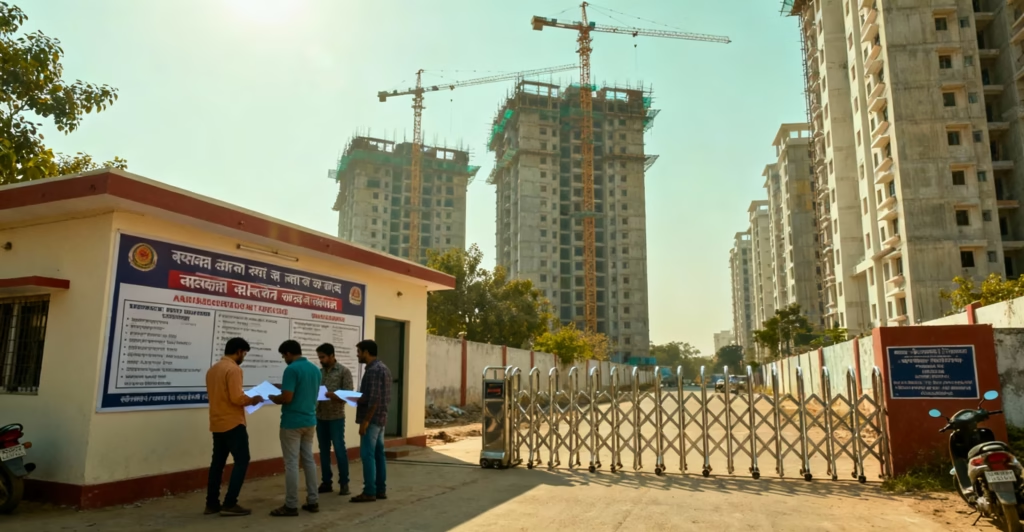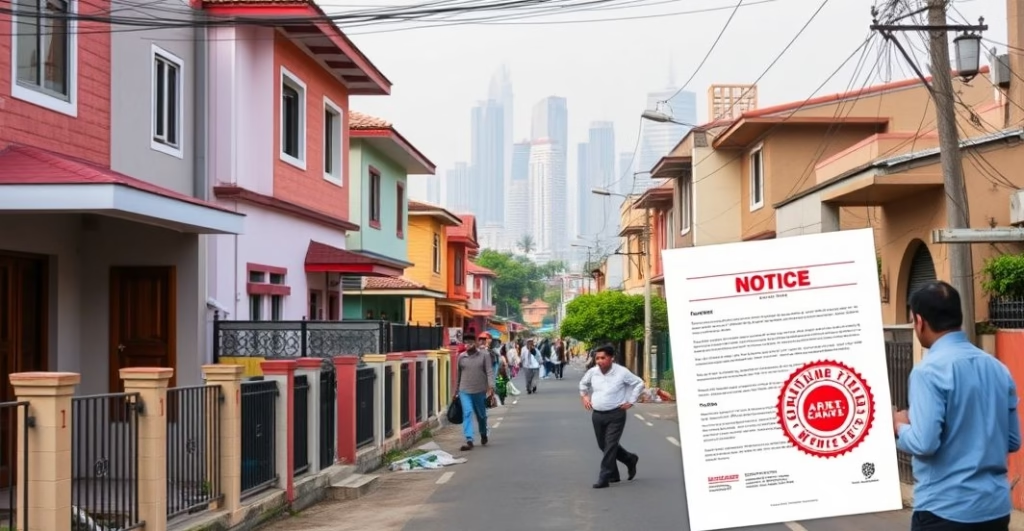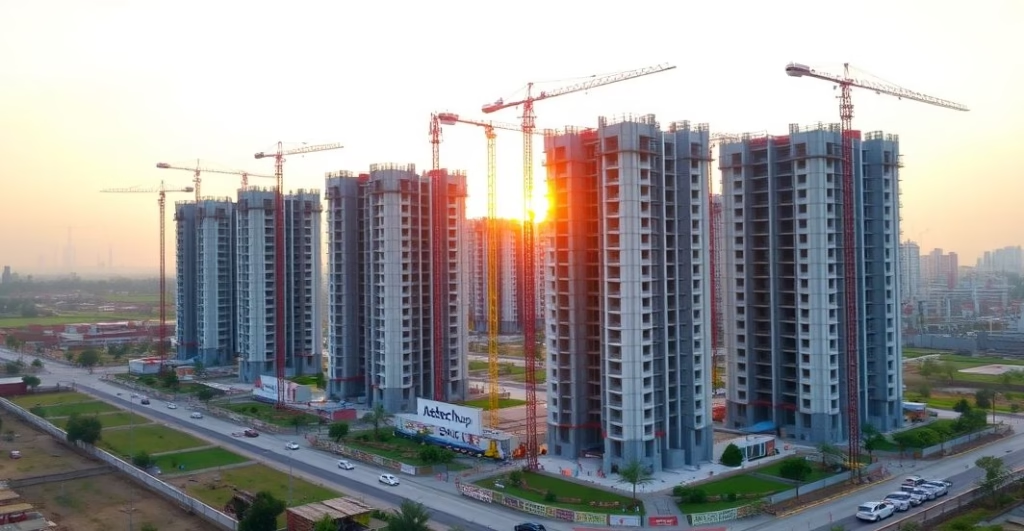Auto-published by Growwh – a smarter way to scale content and marketing. Want to know more? Chat with us.
Noida Authority pursues 22 developers over Rs 5,560cr in dues, freezing registries for ~9,750 flats. Buyers face delays despite state relief and recovery steps.
Registry freeze in Noida: what buyers need to know
The Noida Authority has intensified recovery actions against 22 developers for nearly Rs 5,560 crore in outstanding dues, leaving about 9,750 flat owners unsure when they can complete registrations. The stalled registries stem from a mix of partial payments, non-payment after acceptance of a state rehabilitation scheme, and outright refusal to opt into relief measures.
How the situation unfolded
The Authority grouped defaulting projects into three categories: developers who accepted the rehabilitation policy but paid only partially, those who accepted but paid nothing, and those who refused the scheme. Collectively, these projects span thousands of sanctioned flats with several hundred or thousands of ready-to-register units held up by frozen registry permissions.
Why the state rehabilitation policy matters
The December 2023 state rehabilitation policy recalculated dues, excluded Covid and construction-ban “zero” periods, waived penal interest, and allowed staggered payments. Crucially, developers were required to deposit 25% of recalculated dues upfront to resume registries and obtain completion certificates. Many builders either didn’t deposit the upfront amount or delayed payments, prompting show-cause notices, cancellation orders and sealing of unsold inventory in some projects.
Who is affected and what enforcement looks like
Thousands of homebuyers who have paid in full remain unable to register properties. Enforcement actions taken by the Authority include public display of dues at project sites, cancellation notices, sealing unsold units, recovery certificates, and complaints to investigative agencies. Some developers have approached courts or NCLT, causing temporary stays in certain cases.
Why location and infrastructure still matter
While this crisis affects registration timelines, long-term property fundamentals — such as connectivity and planned infrastructure — continue to shape resale values and demand. For example, transport upgrades and corridor developments influence where buyers and investors focus; see how transit projects drive demand in Delhi Metro expansion and luxury property hotspots to better understand location-led value shifts.
Practical steps for impacted homebuyers
- Confirm registry status: check Noida Authority notices and project-specific boards for official updates and cancellation notices.
- Preserve documentation: keep sale agreements, payment receipts, possession/OC certificates, and all correspondence with builders and the Authority.
- Press for buyer-centric relief: petition for registries to be allowed for ready flats while dues are recovered from errant developers.
- Seek legal clarity: engage a property lawyer to review options, recovery timelines, and rights. Non-resident Indians should pay special attention to cross-border documentation and compliance; see legal due diligence for NRI property buyers in India for a checklist tailored to NRIs. NRI investors can also explore dedicated advisory frameworks like NRI Realty Edge for targeted guidance.
What to expect next: enforcement and timelines
Noida Authority has signaled stricter action under existing rules for non-compliant developers, including cancellation of allotments and intensified recovery. Where builders have filed petitions, courts may issue interim orders delaying coercive measures, but unresolved legal cases typically prolong registry freezes. Homebuyers should track case statuses and Authority announcements closely.
Key takeaways for buyers
- Registry delays are primarily due to outstanding developer dues and non-compliance with the state rehabilitation policy.
- Buyers should gather full documentation, demand transparency from promoters, and consider legal recourse if necessary.
- Infrastructure developments and location fundamentals still influence long-term value despite short-term registry hurdles.
- NRIs and investors should perform focused due diligence and use specialist advisory channels to navigate cross-border issues.
In a fluid situation like this, proactive documentation, timely legal advice, and monitoring official notices are the best defenses for homebuyers. Keep an eye on public notices at project sites and Authority updates, and consult legal or advisory specialists if your registry is stalled.
This article was auto-generated as part of a smart content campaign powered by Growwh.com. Curious how we do it? Chat with us to learn more about our content automation systems.


